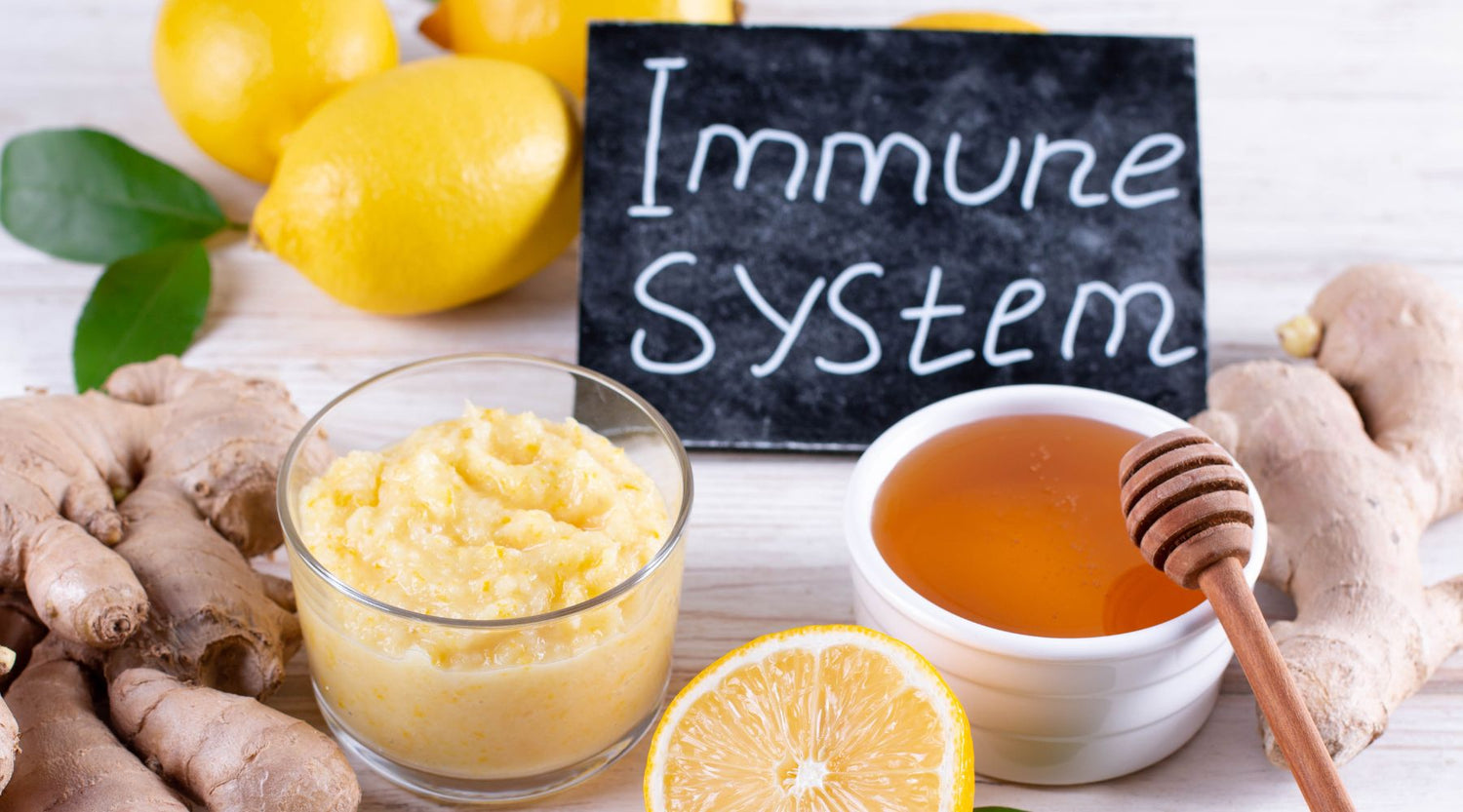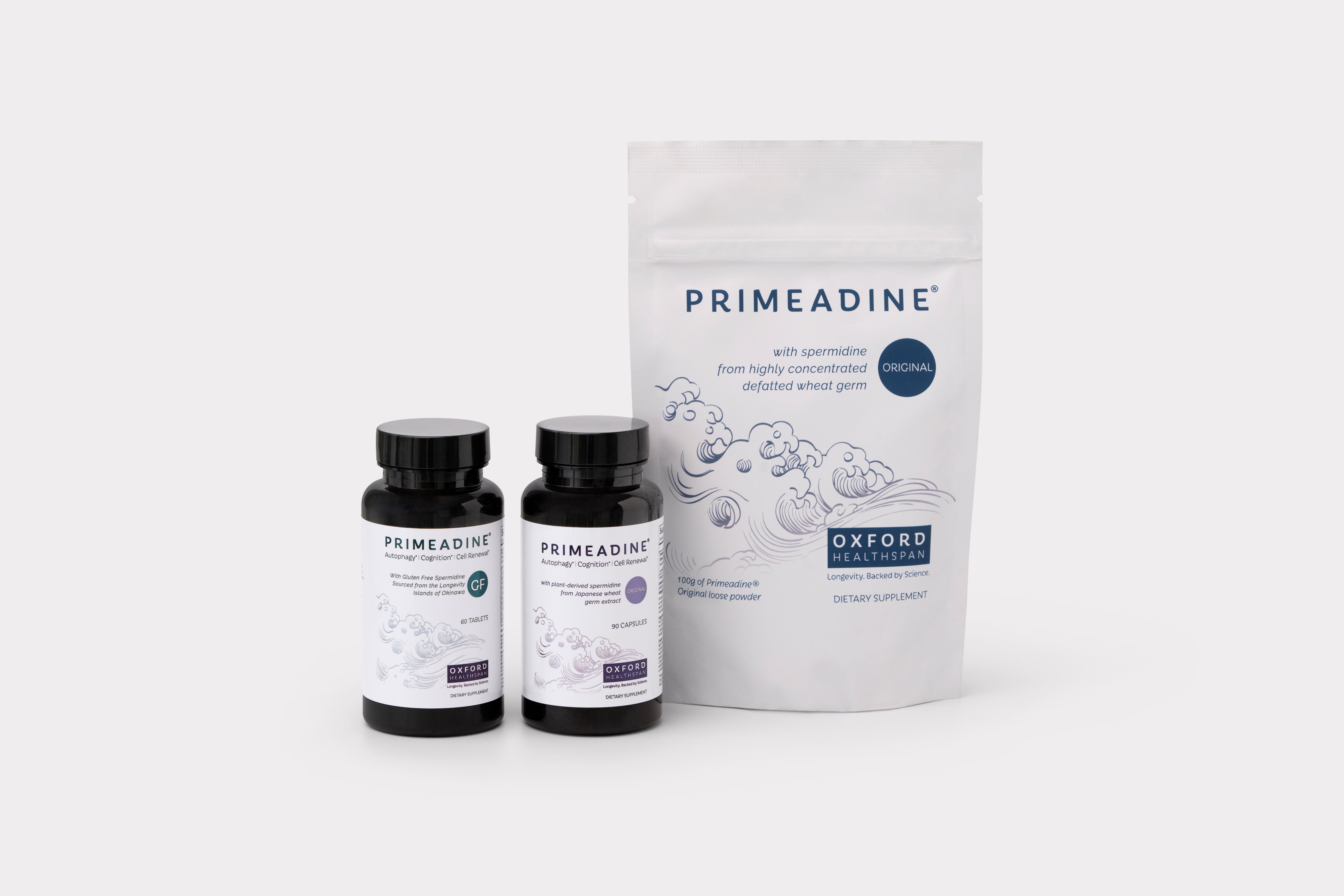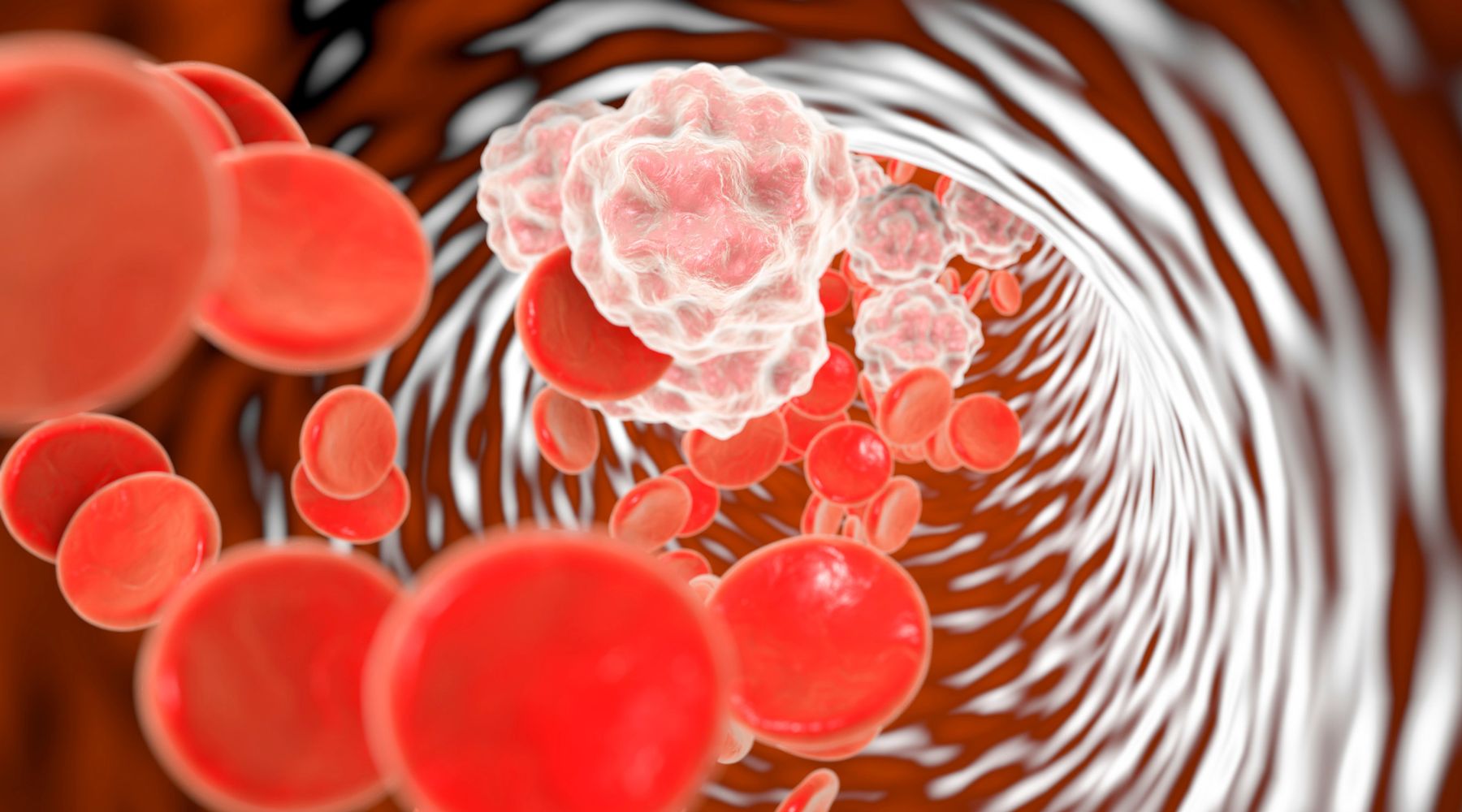Our immune system is like an invisible shield, working tirelessly to protect us from infections and keep us healthy. But as we get older, this shield can start to weaken, leaving us more vulnerable to illnesses. Enter spermidine—a naturally-occurring compound that scientists believe could be key to keeping our immune system strong, especially as we age. In this blog post, we’ll explore what spermidine and how it supports immunity through many mechanisms.
What is Spermidine?
Spermidine is a polyamine, a type of molecule that plays a big role in cellular health and repair. Our bodies produce spermidine naturally, but as we age, production slows down. That’s why getting it from food sources or food-derived supplements becomes more important over time. Foods like wheat germ, soybeans, mushrooms, aged cheese, and a Japanese fermented soybean dish called natto are all rich in spermidine. Research links higher spermidine levels to many health benefits—improved memory and cognition, heart health, hormone balance, and even a longer lifespan.
The Immune System: An Aging Perspective
As we age, our immune system undergoes significant changes that can compromise its efficiency, a phenomenon known as immunosenescence. This decline in immune function leads to increased vulnerability to infections, reduced effectiveness of vaccinations, and a heightened risk of developing age-related diseases. Immunosenescence is characterized by several key alterations in the immune system [1]:
1. A decreased production of new immune cells: due to something called thymic involution, aging comes with a reduced diversity of pathogen-fighting immune cells, such as T and B cells.
2. A build up of memory T cells that are less responsive to new infections.
3. Low-grade inflammation, known as "inflammaging": This chronic inflammation, which is also thought of as one of root causes of aging, can further exacerbate health issues and contribute to the onset of various diseases.
Given these challenges, finding ways to support and enhance immune function as we age is essential for promoting health. Strategies may include adopting a balanced diet rich in antioxidants, exercising regularly, managing stress levels, and considering supplements that can help bolster immune health. By understanding and addressing the factors that contribute to immunosenescence, you can improve your immunity and consequently, your healthspan.
How Spermidine Supports Immune Health
Aging affects our immune system, making it less effective at fighting off infections and responding to vaccines. Spermidine seems to offer a way to “recharge” our immune cells, helping them stay active and effective. Here’s how:
1. Promoting Cellular Clean-Up (Autophagy)
One of spermidine’s superpowers is its ability to trigger autophagy, a natural cellular process that cleans out damaged components and keeps cells functioning optimally. Think of autophagy as the body’s "clean-up" and recycling system—breaking down old or faulty parts of cells so they can be used to build new, healthy components. This process keeps cells in peak condition and prevents the build-up of cellular “junk” that can lead to health issues.
Aging slows down autophagy, leaving cells more vulnerable to damage. But research published in Nature found that spermidine can “wake up” this recycling system, helping cells stay healthy for longer. The study showed that spermidine extended the lifespan of yeast, flies, and worms by activating autophagy, which suggests that it has powerful anti-aging potential. In the context of immune health, boosting autophagy means immune cells can stay more agile and responsive to threats [2].
2. Enhancing T Cell Function
T cells are like our immune system’s frontline soldiers, recognizing and destroying infected cells. However, as we age, T cells become less effective, and we produce fewer new ones. This can make it harder for our immune system to respond to new infections. Exciting research by Professor Katja Simon and her team has shown that spermidine can help restore T cell function, essentially giving aging T cells a second wind [3].
In their study, spermidine helped older T cells regain their ability to produce signaling molecules like interferon-gamma (IFN-γ), which is crucial for coordinating immune responses. By supporting T cells in this way, spermidine may help older adults maintain a more robust immune defense, allowing them to fight infections more effectively. Imagine it as a tune-up for your immune system, helping T cells work like they did in their prime.
3. Supporting B Cell Responses
B cells are another key part of our immune response. They produce antibodies, the proteins that recognize and neutralize harmful invaders like viruses. As we age, B cells also slow down, which can weaken our response to vaccines and infections. Recent research published in Molecular Cell found that spermidine supplementation can help rejuvenate aging B cells, making them more efficient at producing antibodies.
This enhanced B cell function could be particularly beneficial for older adults and in situations where a strong vaccine response is essential, such as during flu season or in the context of COVID-19. By supporting B cells, spermidine may improve the overall resilience of our immune system, offering better protection against infections [4].
4. Calming Chronic Inflammation
Chronic inflammation is a bit like a simmering fire that never fully goes out. It’s linked to many health issues, from arthritis to heart disease. Over time, inflammation can wear down the immune system and make it harder for the body to respond to infections effectively. Spermidine’s anti-inflammatory properties may help here as well.
A study published in Cell Death & Differentiation explored spermidine’s effects on inflammation in a model of multiple sclerosis, a condition where the immune system attacks the central nervous system. The researchers found that spermidine reduced inflammation by calming down certain immune cells, known as macrophages, that release pro-inflammatory molecules. This effect helped reduce the overall immune response, which could be beneficial for people with autoimmune conditions or chronic inflammatory issues. By lowering unnecessary inflammation, spermidine may help keep the immune system focused on real threats instead of being on constant high alert [5].
In conditions like multiple sclerosis, excessive immune cell infiltration (where too many immune cells move into sensitive areas like the brain) can worsen symptoms and cause tissue damage. The study by Yang et al. found that spermidine could help control this immune cell “infiltration.” By limiting the movement of immune cells into the central nervous system, spermidine may help protect tissues from unnecessary damage caused by overactive immune responses [5].
This control over immune cell movement is promising not just for autoimmune diseases but also for other inflammatory conditions. When the immune system is balanced and responsive (rather than always in overdrive), it can better defend against infections without causing unintended harm to the body.
Simple Tips for Supporting Immune Health
Spermidine is just one tool in the immune health toolkit. Here are a few other lifestyle changes that can help keep your immune system in top shape:
- Stay active: Regular exercise boosts immune function! Aim for at least 150 minutes of mild-moderate activity each week - this can be as simple as a daily walk.
- Fresh air and morning sunlight: When you exercise is important too. Brisk morning walks to soak up morning sunlight as well as exercise is the perfect way to start the day for better immunity and mental clarity.
- Prioritize sleep: Aim for 7-9 hours per night to give your immune system time to recharge. Remember, autophagy works best in line with your body's circadian rhythm. Better sleep = more efficient autophagy.
- Stress management: Chronic stress can weaken immunity, so try relaxation techniques like meditation or yoga.
- Eat a balanced diet: Include plenty of fruits, vegetables, and lean proteins to fuel your immune system. Also ensure your vitamin D and zinc levels are adequate, supplementing if diet is insufficient.
- Prioritize your gut health: Are you eating enough probiotic-rich foods, such as sauerkraut, kimchi, bone broth, and miso? Since 70% of your immune system lives in the gut, it's essential to nourish it with fermented produce.
- Stay hydrated: Proper hydration is essential for all bodily functions, including immunity.
- Limit alcohol and avoid smoking: Both can have a negative impact on immune health (and most other bodily systems) over time.
As well as food-derived spermidine supplements, like Primeadine, you can also include spermidine in your diet with foods like wheat germ, soy products, aged cheese, and shiitake mushrooms.
Final Thoughts
Spermidine offers a unique, science-backed way to support our immune systems as we age. By promoting cellular clean-up, boosting T and B cell function, and reducing inflammation, it shows promise as a powerful ally in maintaining immune health.
References
[1] Allen JC, Toapanta FR, Chen W, Tennant SM. Understanding immunosenescence and its impact on vaccination of older adults. Vaccine. 2020 Dec 14;38(52):8264-8272. doi: 10.1016/j.vaccine.2020.11.002. Epub 2020 Nov 21. PMID: 33229108; PMCID: PMC7719605
[2] Eisenberg, T., Knauer, H., Schauer, A. et al. Induction of autophagy by spermidine promotes longevity. Nat Cell Biol 11, 1305–1314 (2009). https://doi.org/10.1038/ncb1975
[3] Puleston DJ, Baixauli F, Sanin DE, Edwards-Hicks J, Villa M, Kabat AM, Kamiński MM, Stanckzak M et al. Polyamine metabolism is a central determinant of helper T cell lineage fidelity. Cell. 2021 Aug 5;184(16):4186-4202.e20. doi: 10.1016/j.cell.2021.06.007. Epub 2021 Jul 2. PMID: 34216540; PMCID: PMC8358979
[4] Zhang H, Alsaleh G, Feltham J, Sun Y, Napolitano G, Riffelmacher T, Charles P, Frau L et al. Polyamines Control eIF5A Hypusination, TFEB Translation, and Autophagy to Reverse B Cell Senescence. Mol Cell. 2019 Oct 3;76(1):110-125.e9. doi: 10.1016/j.molcel.2019.08.005. Epub 2019 Aug 29. PMID: 31474573; PMCID: PMC6863385.
[5] Yang Q, Zheng C, Cao J, Cao G, Shou P, Lin L, Velletri T, Jiang M, Chen Q, Han Y, Li F, Wang Y, Cao W, Shi Y. Spermidine alleviates experimental autoimmune encephalomyelitis through inducing inhibitory macrophages. Cell Death Differ. 2016 Nov 1;23(11):1850-1861. doi: 10.1038/cdd.2016.71. Epub 2016 Jul 22. PMID: 27447115; PMCID: PMC5071574





Leave a comment
All comments are moderated before being published.
This site is protected by hCaptcha and the hCaptcha Privacy Policy and Terms of Service apply.